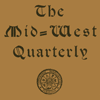
Mid-West Quarterly (1913–1918)
Date of this Version
April 1914
Document Type
Article
Abstract
A generation ago, when the law schools of our state universities were first founded, the dominion of law appeared to be complete. Almost every phase of public and of individual activity was subject to judicial review. It was taken to be an axiom that the people themselves were subject to certain fundamental limitations, running back of all constitutions and inherent in the very nature of free government, and it was assumed without serious question that the scope and the extent of these limitations were questions of law. Administration was subjected to strict judicial control, and almost every measure of police encountered an injunction as a matter of course. We were proud to have achieved a government of laws and not of men, and we looked down complacently upon the bureau-ridden peoples of Europe without a suspicion of being law-ridden ourselves. So important was the role of law in connection with every aspect of social and governmental activity that one need not wonder that in the West the state itself undertook to provide for public instruction in law as a part of its broad programme of popular education
In the interval a great change has gone forward. While the generation that established state universities was proud of the American doctrine of the judicial power over unconstitutional legislation, the present generation seems eager to reject the idea of a fundamental law; and proposals to transform constitutionality from a question of pure law into a question of pure politics find support even in the legal profession. Where the generation that founded the state universities of the West conceived it a postulate of liberty that administration must be confined to the inevitable minimum and sought through judicial review complete elimination of the personal equation in all matters affecting the life, liberty, or fortune of the citizen; the present generation is eager to unshackle administration, to take away judicial review of administrative action wherever possible, and to cut it down to the minimum where it cannot be avoided. Where yesterday we relied upon courts, to-day we rely upon boards and commissions. Even in criminal causes, which the lawyer regards, before all things, as the domain of the common law, Juvenile Courts, probation commissions, and other attempts to individualise the treatment of off enders—these, as well as the desire of the medical profession to take questions of expert opinion out of the forum and commit them to a sort of medical referee, bid fair to introduce an administrative element into punitive justice which our fathers would have abhorred. Yesterday, when the project of state colleges of law was first announced, the courts and the law played the chief role in the practical conduct of affairs. To-day, when the execution of that project is complete, it might seem that there is danger that nothing of real moment will much longer be committed to them.
The most significant feature of twentieth century thought is faith in the efficacy of conscious social effort and of intelligently directed social control. For it is not physical nature alone that may be harnessed to man’s use. The laws by which mind combines its work with mind and with the non-sentient factors of human conditions are no less a part of nature and are no less to be learned and put to use. Not the least part of these laws consists of those determining the standards of conduct in the relations of man with man and of man with society which will advance civilisation and will make for the best and noblest society. And the administration of justice as far as reason and principle may insure conformity to such standards, not arbitrarily or in the conscious interest of any man or any class—-this is the justice according to law of our Germanic, our Anglo-American tradition, the sighing of the creature for the justice and truth of his creator, which marked the German law of the Middle Ages, the rule of the king under God, and the law of which Bracton spoke, and the fundamental law running back of all states and constitutions which our fathers sought to express in bills of rights.


Comments
Published in Th e Mid-West Quarterly, 1:3 (April 1914), pp. 223–235.